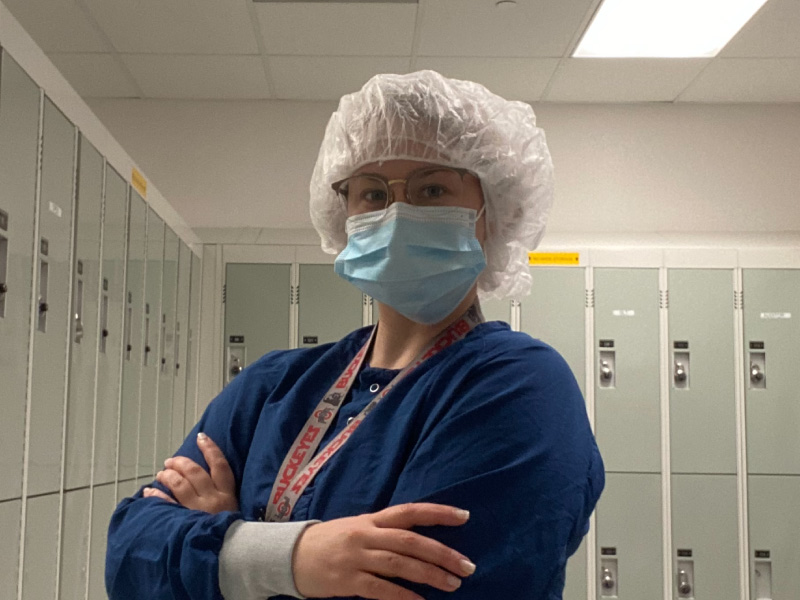Miami University Regionals grad works on front lines of COVID vaccine development
The COVID-19 pandemic changed the employment and education plans of people across the world. For one Miami University Regionals alumna, helping to cure it became part of her immediate plan.

Miami University Regionals grad works on front lines of COVID vaccine development
The COVID-19 pandemic changed the employment and education plans of people across the world. For one Miami University Regionals alumna, helping to cure it became part of her immediate plan.
Jess Merland earned her bachelor’s degree in Psychological Science and Applied Social Research in 2019 and was planning to head to medical school. She opted to take a gap year to study for the Medical College Admission Test (MCAT) before applying.
“I paid my way through school with three jobs, and I honestly needed a break. I wanted my whole focus to be on the MCAT and go from there,” Merland said. “I was also applying for jobs so I could add some experience to my resume.”
A recruiter from pharmaceutical and biotechnology giant AstraZeneca found Merland’s resume on LinkedIn and suggested she apply for a position at the company’s manufacturing operation in West Chester, which serves as its global COVID-19 vaccine production site.
Merland applied for two positions — was offered both — and opted to be a Formulation Technician and work on manufacturing the vaccine as a member of the Buffer Formulation Prep Team.
Merland explained that the vaccine arrives at the facility heavily concentrated and needs to be diluted for it to be used.
“Buffer is a combination of elements that we make in large tanks to dilute the actual drug substance,” she said. “Once the buffer is made, we transfer it to smaller tanks that we bring to Formulation, and we add in the drug substance. Once everything is mixed and cooled, we send the vaccine to the Filling Team so they can put it in vials.”
According to Merland, this process, which is new for the West Chester facility and requires a great deal of sterilization, can take up to four days to complete, resulting in 150,000 vials — each containing 10 doses of vaccine. The European-based company has supplied vaccine to more than 100 countries, with two-thirds of those doses going to lower- and lower-middle-income families.
The Monroe native said her studies at Miami, along with the long hours she keeps at AstraZeneca, are helping to prepare her for medical school.
Merland said her degree helped her understand the huge process that it takes to create a vaccine.
“When I first started, they were walking us through how the scientific method is used daily and how it’s the focus at AstraZeneca. I tend to be the person that is breaking down the stats that we get weekly, and I have started to take online classes through AZ to learn R and Python. Since I am in manufacturing, the numbers are important, and we have a breakdown of what our goals should be. I think my degree has helped me help others understand how to read graphs, stats, and charts.”
It also helped her understand that any medical process takes time and a lot of communication between colleagues.
“I've learned to give myself grace and to ask questions if I don’t understand a process. This job isn’t about me; it's about the patients that will receive this vaccine and I need to make sure I’m following procedures.”
Beth Dietz, chair of the Department of Social and Behavioral Science, said the Psychological Science degree — offering students content focused on such areas as biopsychology, human development, social psychology, cognitive psychology, and abnormal psychology — has a strong research component.
“Students learn how to collect and analyze data, as well as how to communicate the results to general and specialized audiences,” she said. “This experience was clearly instrumental in Jess’ success at AstraZeneca and will serve her well as she explores her path to medical school.”
A Marine veteran, Merland hopes to become a psychiatrist, specializing in neuroscience or behavior. She would like to conduct research on the veteran population and incorporate a more holistic approach into their treatment.
